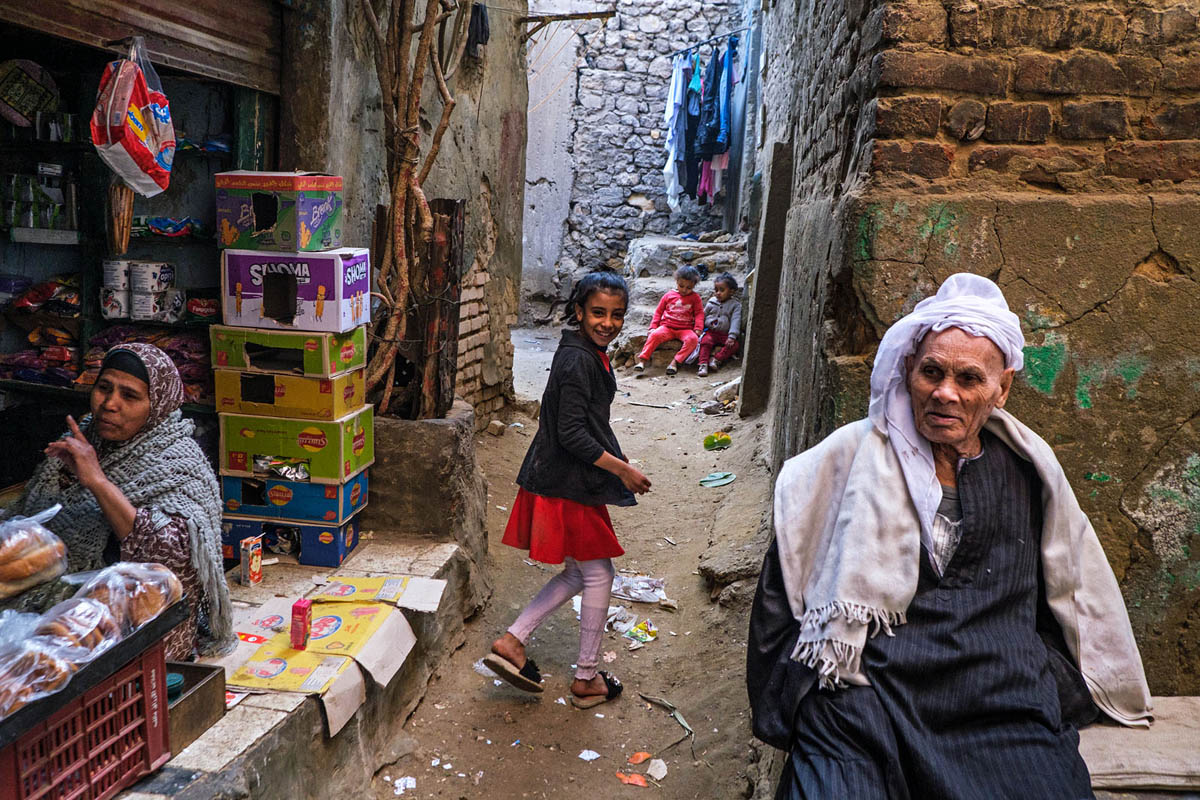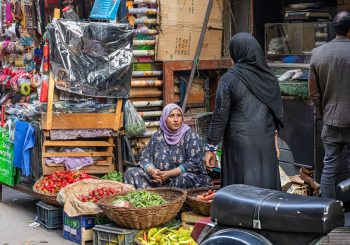Fatma Al Zahraa Mohamed, a 38-year-old mother of three, begins her day before dawn, clocking double the hours she once worked just to afford the rising cost of basic necessities. Her husband, out of work for years, leaves Fatma as the sole provider, a burden that has become heavier with each passing month.
“I’m always worried about how I’ll give my kids a decent life,” Mohamed said. The constant financial strain has taken a toll on her mental health, as she juggles the pressure of putting food on the table and paying for her children’s education.
According to a 2011 study by the World Health Organization, mental health troubles are closely linked to deprivation, poverty, and economic inequality, making times of financial crisis strenuous for the well-being of affected individuals and their families.
This is particularly evident in Egypt, where economic hardships have intensified. In March 2023, inflation reached an alarming 31.9 percent, with core inflation rising even further to 40.26 percent. Food prices alone surged by 61.8 percent year-on-year.
Fast forward to August 2024, and the pressure is still mounting, urban inflation jumped to 26.2 percent, with rising costs across essential goods—like food, beverages, and public transportation—pushing many Egyptians to the brink.
Household budgets, weighed down by relentless fuel hikes, increased metro fares, and soaring electricity tariffs, are creating more than financial strain. A study by the National Center for Biotechnology Information warns that the daily stress of managing these rising costs is taking a significant toll on mental well-being.
This year alone, electricity prices rose between seven and 20 percent, metro fares between 25 and 33 percent, and fuel costs jumped by 12 percent—the largest hike in recent years.
The abrupt change in prices can lead to feelings of anxiety. According to the Journal of Mental Health, economic crises are associated with a rise in depression and chronic stress, which can continue long after the crisis subsides.
To put things in perspective, in 2018, essential goods in Egypt were significantly more affordable—a kilogram of rice was priced around EGP 9 (USD 0.19), but today that same kilogram costs over EGP 30 (USD 0.62), a more than 230 percent increase. Metro tickets, which once started at EGP 3, now range between EGP 5 (USD 0.10) and EGP 12 (USD 0.25), marking a 67 percent to 300 percent rise. Similarly, milk that used to cost EGP 14 (USD 0.29) is now nearly EGP 50 (USD 1.61), an increase of over 250 percent.
These price hikes are doing more than tightening household budgets—they are escalating stress levels, especially as wages lag far behind the soaring costs. Watching prices rise while salaries remain stagnant adds immense anxiety, particularly for families who are now facing a lower standard of living.
The issue is not merely the rising costs of goods—it is that incomes have not kept pace. Even with the minimum wage rising to EGP 6,000 (USD 123) in 2024, it falls short of covering basic living expenses.
The average salary in Egypt is EGP 9,200 (USD 190) per month or EGP 110,000 (USD 2,258) per annum, but this excludes a significant portion of the workforce in the informal economy. Many of these workers, who lack written contracts or social insurance, often earn well below the minimum wage, further exacerbating their financial struggles.
“With my salary remaining almost the same while everything is nearly triple the price, I have to work double the hours, which leaves me physically exhausted by the time I get home to my kids. I can’t even spend time with them anymore,” Mohamed said.
Similarly, the middle class, once accustomed to vacations, dining out, and leisure, is now struggling to make ends meet.
Malak El Khayat, 24, a talent acquisition specialist, captures the emotional toll.
“The constant rise in prices is overwhelming. Even though salaries have increased, it’s nowhere near enough to cover the jump in the cost of living. Many people, including myself, have had to give up things we used to enjoy because we can’t afford them anymore,” she told Egyptian Streets.
For El Khayat, adjusting to this new reality has been emotionally draining, sparking persistent anxiety.
The inability to maintain a prior standard of living often results in feelings of helplessness and depression, as noted by the National Center for Biotechnology Information. With rising living costs and ongoing uncertainty, families are increasingly challenged to manage everyday expenses, leading to heightened anxiety and stress, particularly for those already stretched thin.
Despite the growing mental health crisis, it remains a taboo topic in Egypt, preventing many from seeking help. Even when people recognize their symptoms, mental health care is often too expensive, with therapy sessions ranging from EGP 300 (USD 6.19) to over EGP 1,000 (USD 20) per session—putting it out of reach for many.
As economic pressures rise, the need for affordable mental health care is more critical than ever. Without accessible support, financial stress may continue to compound untreated mental health issues, deepening the crisis.







Comments (0)